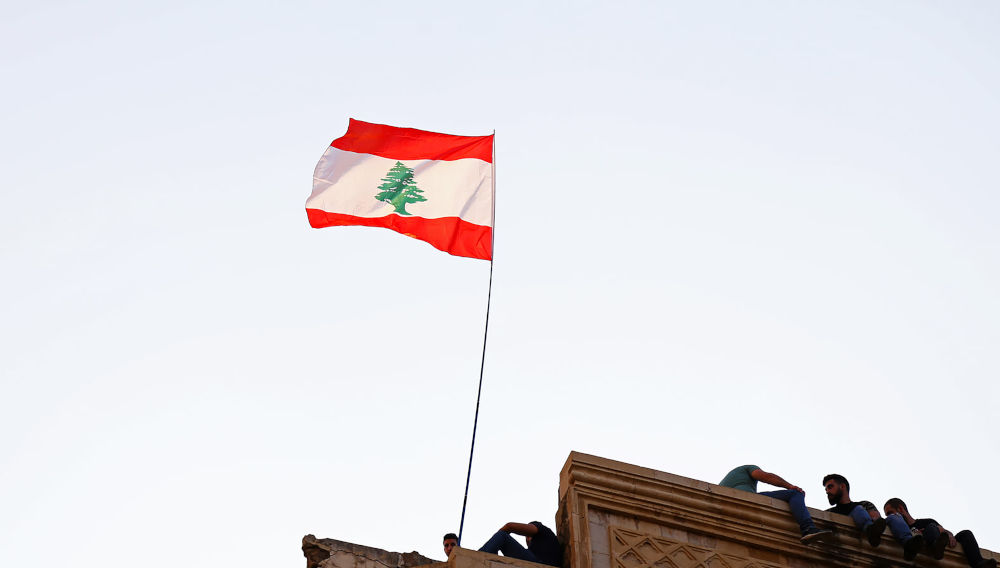Philippe Jabre: From hedge fund manager in Geneva to brewer in Beirut
Lebanon | These days one has to be grateful for any positive news coming out of the crisis-ridden Middle Eastern country. On 1 October, the leading Swiss newspaper, Neue Zürcher Zeitung (NZZ) posted a gushing portrait of Philippe Jabre, 63, who ran a successful hedge fund in Geneva before returning to his home country and taking control of Lebanon’s number one brewer, Brasserie Almaza, which had been founded by his grandfather in 1933.
Mr Jabre, who hails from a prominent Lebanese Catholic family, was once one of Europe’s best-known hedge fund traders, the Financial Times newspaper reported earlier this year, not least because of his run-in with the UK’s financial regulator in 2006 for alleged market abuse.
The NZZ failed to disclose that in 2006 he received what was then a record individual fine of GBP 750,000 (then USD 500,000). But this is water under the bridge.
After gaining notoriety in the UK, Mr Jabre moves to Switzerland and sets up a hedge fund, Jabre Capital, plus several personal wealth management companies, which he heads until 2018.
Heineken takes majority control of Almaza
Mr Jabre probably did not give much thought to the Almaza brewery, which had been founded by his grandfather together with families Comaty and Angelopoulu. Over the years, his family’s stake in the brewery has shrunk, especially when Dutch brewer Heineken, in 2002, ups its stake to 79 percent, in a deal estimated to be valued at USD 25 million at the time.
Lebanon is a broken country. As the Financial Times explained: “Since 2019, Lebanon has been mired in one of the world’s worst economic crises in modern history: more than three-quarters of the [6.7 million strong] population has been plunged into poverty, while its currency has lost more than 95 percent of its value against the dollar. Most Lebanese have had their funds frozen in its zombie banking system since late 2019, with monthly withdrawals capped and dollar deposits forcibly converted into Lebanese currency at a punishingly low rate. The country is also trudging through an unprecedented leadership vacuum, without a president for the past nine months and only a caretaker administration governing and stalling on reforms.”
The NZZ reporter was even blunter in his criticism: “There is no improvement in sight. Because since the end of the civil war in 1990, Lebanon has been ruled by politicians who seem to be driving the country to the wall at will.”
It is indicative that to this day no one has been sentenced for the catastrophic 2020 Beirut port blast, which destroyed swathes of the Lebanese capital and killed more than 220 people.
Heineken wants out
In mid-2021, Mr Jabre learns that Almaza’s backer Heineken is looking to sell off its controlling stake in the company due to Lebanon’s difficult economic circumstances. The brewery is at risk of shutting down for good, putting nearly 200 jobs at risk. He buys Heineken’s stake for an undisclosed amount with his own money. The acquisition increases the stake of the Jabre family to more than 70 percent from 12.5 percent, Lebanese media reported. Heineken retains a minority stake, providing Almaza with access to international brands and technical expertise.
Four years into the crisis, the economy has largely been dollarised but the brewery still cannot get credit lines, the Financial Times discovered. Mr Jabre initially has to front the business cash to pay for around half of its imports but he said this will be phased out “because our cash flow is now positive as the business is more stable”.
Almaza has big plans. It claims to produce around 160,000 hl beer a year, down from 250,000 hl in 2016. Exports currently make up a quarter of its production, a number Mr Jabre hopes will reach 40 percent soon.
Almaza promotes diversity
This summer, Almaza launched the company’s first new product in a decade, Almaza Unfiltered. Its ad campaign, which can be viewed on its website (https://www.almaza.com.lb), caused a furore as it is dedicated to all Lebanese breaking social taboos. Some even went so far as to call the add “woke”.
The video was pilloried by many who accused the company of exploiting Lebanon’s tragedies for commercial gain. Mr Jabre defended it as capturing “the many contradictions of this tiny country”.
Craft beer has seen its customer base shrink
Almaza may be struggling to overcome the many obstacles to doing business in Lebanon these days. Imagine how much harder it must be for the country’s handful of craft breweries, which are listed on the website RateBeer?
Buying anything from raw materials to packaging from abroad is a big issue because of the rapid devaluation of the local currency. The craft brewer Elmir told the website goodbeerhunting.com in September that its prices are listed in US dollars. “Two years ago, we were one of the first and very few F&B suppliers to do so. Our clients pay us in Lebanese pounds, but always at the daily rate. Once we get paid, we immediately buy dollars, on the same day.” Problem is, the brewery often gets paid with a two-to-three-week delay, during which time exchange rates are likely to have deteriorated.
Making matters worse is the fact that craft beer’s consumer base has shrunk, partly because the middle class has little money to spend, partly because many young Lebanese left the country after the port explosion of 2020.
However, despite the crisis, there is still money sloshing around the country, not least thanks to remittances and tourism from the Lebanese diaspora. There is hope yet that Lebanon’s brewers will weather the current crisis.

